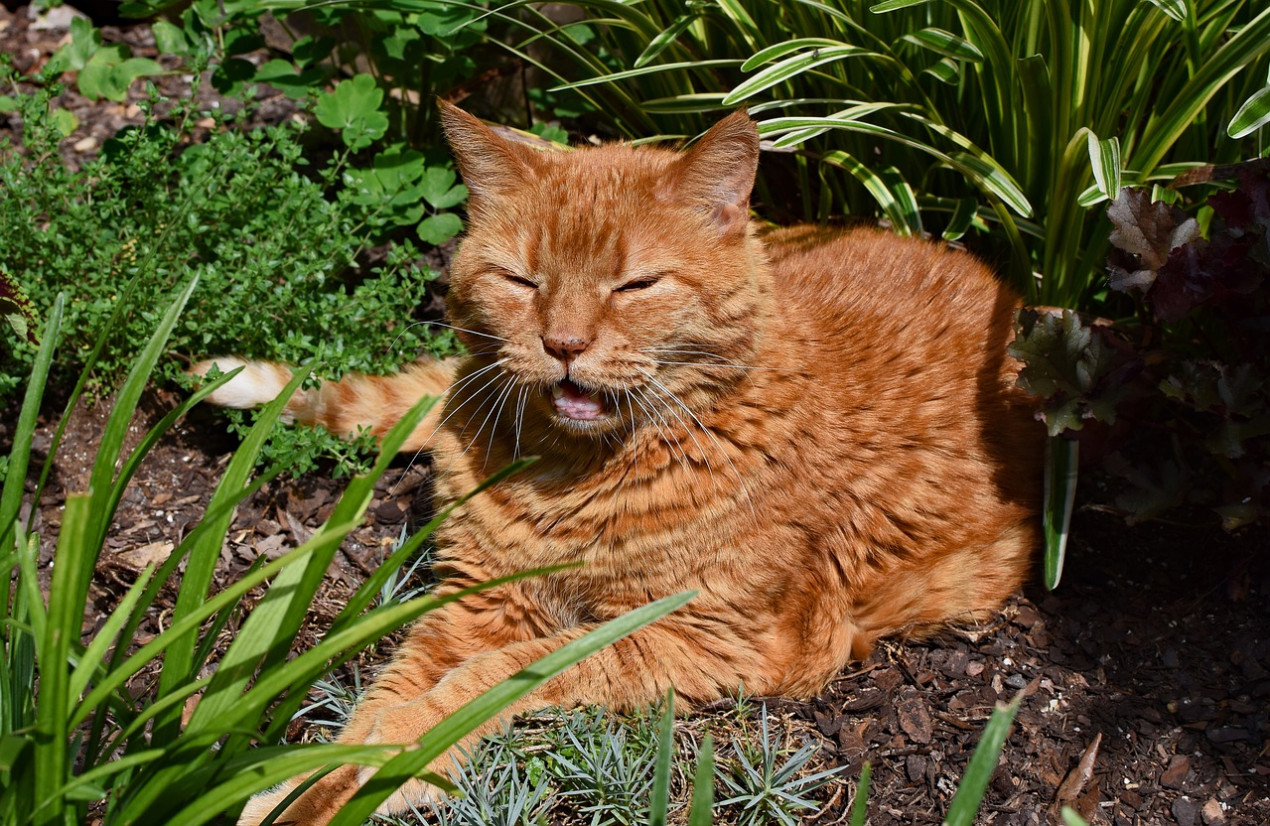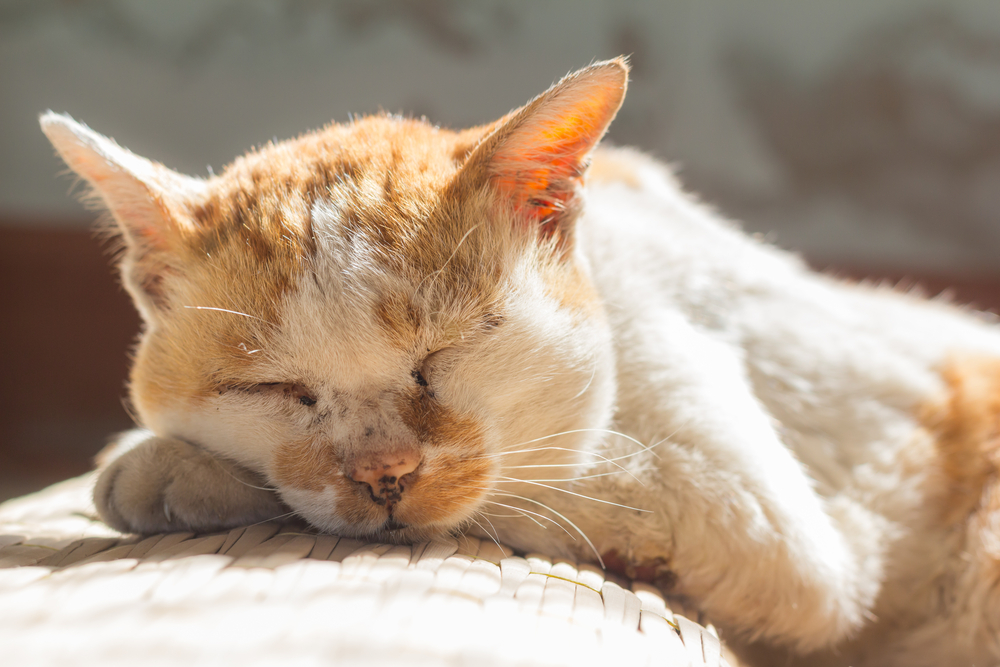
Changes and common health problems in elderly cats
Cats are classed as senior at around 10 years of age and geriatric between 12 and 15, depending on their breed. But thanks to advances in nutrition and veterinary care they are living longer. In order to give them a good quality of life for as long as possible, it’s important owners are aware of their needs, as well as some of the most common conditions they can develop.
1. Elderly cat losing weight
As they get older cats often begin to lose their sense of smell and taste. This can lead to inappetence. Elderly cats are also less efficient at digesting food. As a result, they will often benefit from more frequent smaller meals. It’s worth noting that weight loss can also be the first sign of disease so it’s important to monitor your cat’s weight. Don’t forget, however, that even older cats can put on weight if they’re fed too much. This brings its own health problems.
2. Keeping your cat active
Older cats often move less and this can lead to loss of muscle tone and joint stiffening so it’s important to continue playing, even just for a minute or two, with your cat throughout the day. All cats enjoy regular play regardless of their age. It’s one of the secrets to their health and happiness.
3. Cat cold
Elderly cats have poorer coats and are less able to regulate their body temperature than their younger counterparts. This means they are more sensitive to the cold. Make sure they’ve somewhere warm and cosy to sleep and relax.

You might also be interested in:
4. Decreased drinking
Elderly cats often don’t drink as much water, especially if their mobility or appetite has decreased. This means they’re more at risk of dehydrating which is particularly dangerous if there are underlying conditions such as kidney disease or diabetes. Make sure your cat always has access to fresh, clean water and perhaps also a water fountain.
5. The immune system
You cat’s immune system may not function as well as they get older. This increases their susceptibility to infection. Therefore, it is very important to ensure they’re up to date with their vaccinations.
6. Changes in environment
Just like humans, elderly cats don’t tend to adjust well to major changes in their environment or diet. If you’re moving home make sure you keep them in one room for a few days before introducing them to the rest of the house and, if they’re an outdoors cat, keep them indoors for at least two weeks. Try to introduce any new food gradually while keeping the old diet available in a separate bowl.
7. Regular health checks
From the age of seven it is recommended that cats receive additional checks at their annual examinations, including blood pressure measurement and urine analysis. From 11 ideally they should also have annual blood tests, and checks may be increased to twice yearly. Many vets now offer geriatric clinics to specifically cater to the needs of our ageing feline friends.
